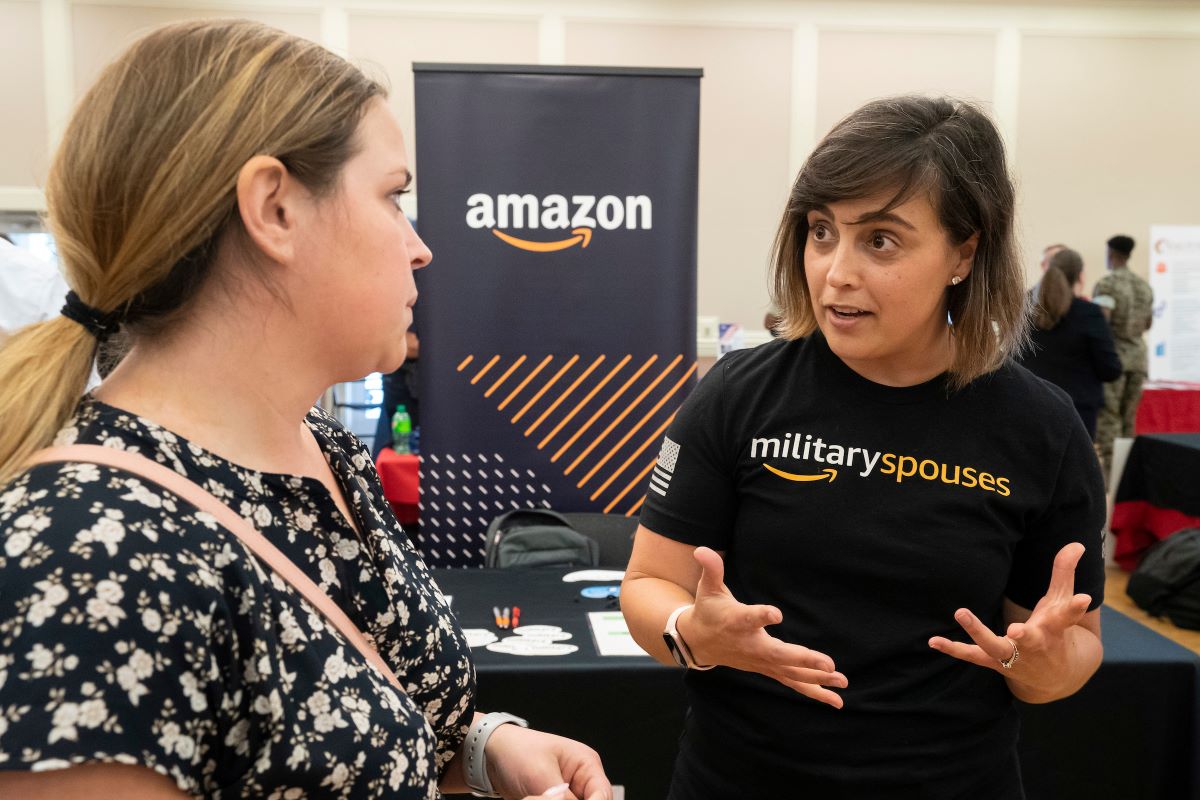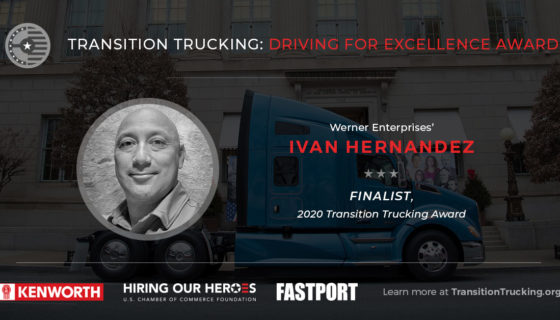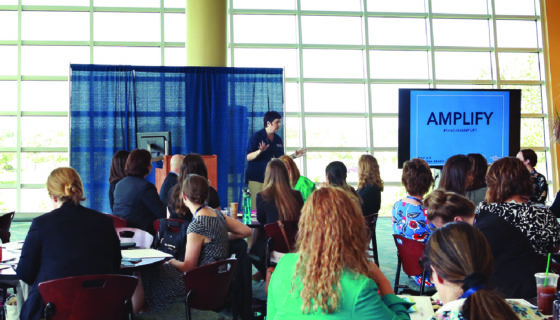How to Use an Informational Interview to Gain Valuable Information

For many of us, job interviews are anxiety-ridden evaluations. We’re grateful our resume got us in front of the hiring manager, yet, we doubt our responses to the interview questions. Where do I see myself in five years? I don’t even know where I’ll be living in five years!
One way to ease your job interview anxiety and expand your professional network is to embrace job interview’s casual and confident cousin – the informational interview.
While an informational interview is not a job interview, the informational interview is a multi-functional tool that every military-connected job seeker needs to have in their job search toolbox. Through a 30-minute conversation, you can gain valuable insight from someone who works in the field that you’re pursuing or make a connection at an organization.
Consider these job search statistics:
- An estimated 70% of jobs are not advertised.
- 7% of job applicants come from referrals and 40% of these applicants are hired.
- One out of every 200 resumes results in a job offer. One out of every 12 informational interviews results in a job offer.
An informational interview is an opportunity to talk about your professional goals, learn about various career paths, and build relationships for the future. Here are five tips for making the most out of your informational interviews.
Connect with Someone Who You Aspire to Be
You need to know what you want to achieve through this informational interview before asking someone to meet with you. Are you curious about Toyota’s military resource group? Are you thinking about pivoting your career in the direction of business data analyst? Do you want to know more about remote job opportunities through Microsoft?
By searching LinkedIn, you can find someone who you aspire to be and this is the person who you want to connect with for your informational interview.
When you review their LinkedIn profile, try to find a connection point with this person. Did you both serve in the Army in Seward, Alaska? Are you alumni of the same university? Is this person on the board of directors for a nonprofit organization that you volunteer with?
Mention your connection when you request your informational interview. Remember, if someone has a shared connection, they are more likely to want to meet with you.
Even if you are desperate for a job, you don’t want to sound desperate when you request an informational interview. Your email should focus on your interest in this person and their career history and perspective on their industry. A request that overemphasizes your job search will likely be met with a link to the company’s job openings website and a “good luck on your job search” email reply.
Don’t Be Shy – Send a Follow-up Email
Everyone is busy and your carefully crafted email inviting the director of communications to coffee next Thursday may have gotten lost in their inbox. Don’t panic if this person doesn’t immediately respond to your email. I believe a lack of response is not a rejection; it’s a “not right now” response.
If your contact doesn’t respond in a week, reply to your first email and kindly ask if he or she has had time to read your previous email. In this follow-up message, emphasize how much you would appreciate meeting with them and that you want to meet for only 15 minutes.
Be Professional During the Informational Interview
An informational interview isn’t a job interview, but that fact isn’t an excuse to arrive late or to act unprofessionally during it.
It is recommended that you arrive 10 to 15 minutes prior to your appointment time and to dress in appropriate business attire. Consider the adage – “Dress for the job you want, not the job you have.”
When you meet your informational interview contact, remember to smile, make eye contact, and introduce yourself with a firm handshake and your 30-second elevator pitch. Silence your cellphone prior to the meeting. Nothing is worse than notification pings interrupting the flow of an engaging conversation.
Have Your List of Interview Questions Ready
Prior to the informational interview, write a list of 10 to 20 questions about the person’s background, position, and company. It is recommended that you have these questions written down in a notebook and as the person answers each one, write their answers in your notebook. Stay engaged in the conversation and don’t be afraid to ask follow-up questions based on the person’s answers.
Here are questions you may want to ask during an informational interview:
- What duties do you perform during a typical day? How much variety is there on a day-to-day basis?
- Which educational program is recommended for this career field?
- What kinds of courses are most valuable in order to gain the skills necessary for success in this occupation?
- What degree or certificate do employers look for?
- What are the important keywords or buzzwords to include in a resume or cover letter when job hunting in this field?
- What was your career path from college to present?
- How would you describe the atmosphere/culture of your workplace?
- What are the greatest pressures, strains, or anxieties at your job?
- Who else do you recommend that I talk to about this career field?
Be prepared to answer questions about yourself. This person may ask about your professional goals, work experience, education, and why you want to work in this field or with this company.
Keep a close eye on the time and do not let the informational interview go longer than 30 minutes.
Send a Thank You Email for the Informational Interview
This tip may be the most important and overlooked one – send a follow-up email thanking the person for meeting with you.
Besides thanking them, you may want to include a link to a professional article on a topic that was discussed during the informational interview. You can also recap any actions that you’ve taken since the meeting.
A thank you email requires about five minutes of your time, but is the most likely to build rapport with career contacts and improve your odds of receiving job search assistance in the future.
No matter where you are in your career journey, an informational interview is a useful experience. Sure, the first one may feel a little forced, but with practice and our five tips, you will quickly become an informational interview pro.



